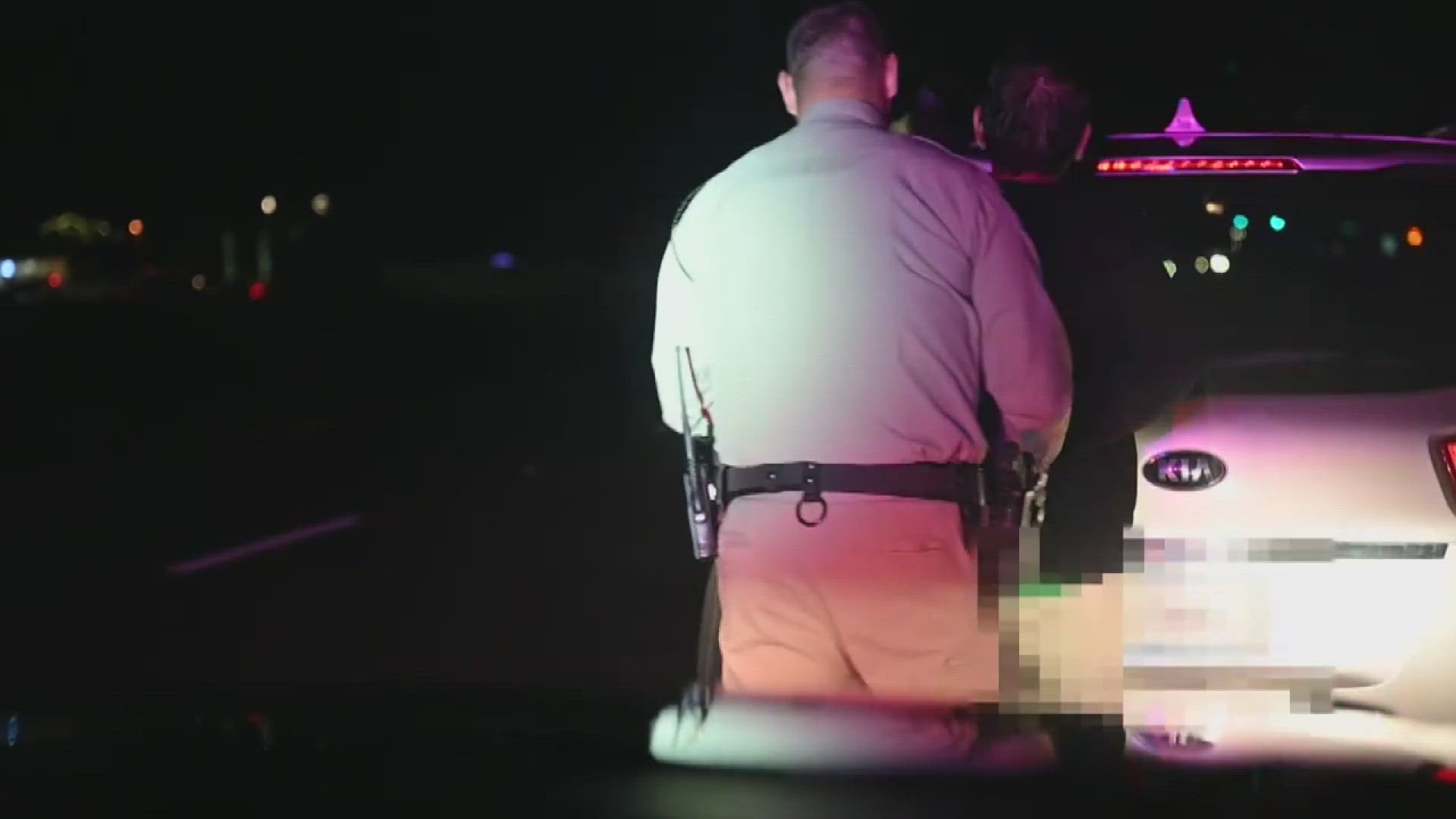COCHISE COUNTY, Ariz. — A 12-year-old boy was detained after being caught transporting migrants he picked up at the border, the Cochise County Sheriff’s Department said.
The incident happened sometime in 2022 when deputies also stopped a couple of 13-year-olds doing the same thing.
The children were recruited through social media or video games and hired to do the cartel's work. It’s a trend that law enforcement agencies have reported they’ve seen a rise.
“We see it all the time,” said Cochise County Sheriff Mark Dannels. “It’s sad to say.”
From January to May 30 of this year, Dannels said his agency alone has arrested 21 teenagers for border-related crimes. That included two 15-year-olds, six 16-year-olds, and thirteen 17-year-olds.
Last year 89 teenagers were arrested for allegedly transporting migrants or drugs. Almost all were U.S. citizens and were allegedly driving their parent’s cars. Most of the teens had weapons.
“The majority of parents or guardians when we call them, they have no idea their child is in Cochise County committing an international crime,” the Sheriff said.
Fast cash for load cars
As the world has evolved to use technology for everyday life, so have criminal organizations.
Michael Vigil, ex-head of International Operations for the U.S. Drug Enforcement Administration, said cartels began recruiting teens about ten years ago. The rise of the internet has broadened their reach and changed their techniques to find new workers, he added.
“The children are very susceptible because they spend a lot of time on the internet,” Vigil said. “Social media allows them to communicate with many people, which they can’t do on a personal basis, and at the same time they offer them more money than what they would earn in a regular job.”
The price per migrant head transported from the border to a certain destination has increased over the years. Going from $1,200 to about $2,500 today.
That type of fast cash for a ‘load car’ makes it a lucrative deal for teens, said Sheriff Dannels.
“When you look at the recruiting message, it makes it sound simple and that it’s easy money,” the Sheriff said. “They don’t understand the magnitude of complexity to it, the violence that’s involved in it, and the consequences of doing it.”
Law enforcement agencies have reported teens have been recruited through Snapchat, WhatsApp, Facebook marketplace, TikTok, and through video games like Grand Theft Auto.
Fighting back
During the first five months of this year, 683 people have been booked into jail for border-related crimes in Cochise County, said Sheriff Dannels.
Of those, 630 were U.S. citizens. In 2022, 1,578 people were caught engaging in human or drug smuggling. Of those, only 78 were born in another country.
“When you have these numbers, on top of the death that we see with the drugs coming into this country, we have a problem,” the Sheriff said. “We can do better.”
Sheriff Dannels believes law enforcement can “fight back” against criminal organizations by “securing the border,” creating higher consequences for those engaging in illegal activity, and cooperation between local and federal agencies.
He supports the Combatting Cartels on Social Media Act, which was reintroduced by Independent Arizona Sen. Kyrsten Sinema and Sen. James Lankford, R-Okla, early this year. The legislation would require the U.S. Department of Homeland to analyze cartels’ social media use and establish a process for technology companies to voluntarily report cartel recruitment efforts in the United States to federal, state, and local governments.
The bipartisan legislation was approved by the Homeland Security Committee this week.
A new law that went into effect last September in Arizona is helping Sheriff Dannels fight back. Arizona Revised Statue 13-2323 makes it easier for local agencies to charge drivers with human smuggling if they attempt to hide migrants from a law enforcement officer.
The law makes smuggling a class 2 felony that mandates prison time. Those convicted of this crime are not eligible for a sentence suspension, probation, or pardon.
So far this year, Cochise County has charged 180 people under the new statute and booked 121 people for failing to yield that ended in pursuits.
“Kids should be out playing sports, be home with mom and dad, playing with their brothers and friends, instead of in Cochise County committing serious crimes,” Sheriff Dannels said.
Up to Speed
Catch up on the latest news and stories on the 12News YouTube channel. Subscribe today.

